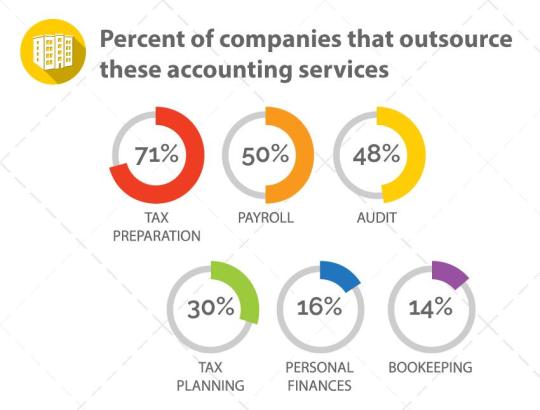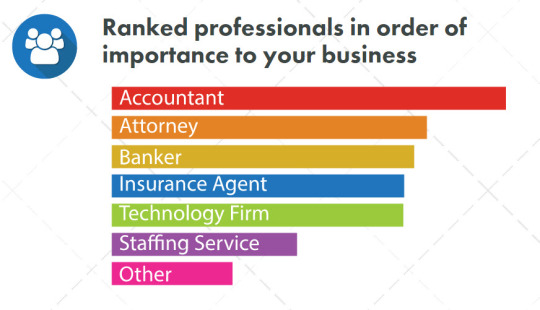
If an
accountant is the most important professional to a small business — followed by
an attorney, banker, and insurance agent — then why are most small business
owners calling their accountant only once a year?
Think about
it this way: when you have a good, healthy relationship with anyone, you will
be on the “inside scoop” of whatever it is they know. When you cultivate those
relationships, you’ll be the first to hear about new opportunities and trends. 70%
of small business owners outsource their tax preparation, according to a small
business accounting report by Wasp Barcode Technologies, and most
are satisfied with their accountant.
But how much
do small business owners know about their accountant? Would they switch accountants
if they weren’t the right fit? Since accountants are so vital to the success of
your business, it’s a smart business move to check in often — at least month to
month.
“The best
thing you can do [for your small business] is work with your CPA on a proactive
basis,” states Robert Gambardella, a Conn.-based CPA and co-author of the
book Secrets of a Tax Free Life, told Leslie Ayers at Intuit. “Find someone who is more than just your
tax preparer. You really need a year-round trusted adviser.”
In short,
seeking out accountants once a year during the busy tax season isn’t the
smartest strategy. Below are the top reasons why you should be regularly cultivating
your relationship with your accountant.
1. Be sure your accountant is the right
person for the job.
Everyone has
a different work style and approach. Does your accountant’s preferences match
your own? This might not seem important, but if you’re paying someone to handle
one of the most important tasks of your business, then you better be getting
your value’s worth. You wouldn’t hire an executive without vetting them first,
so don’t hire the first accountant you meet because you think they’ll be able
to do the job. If their communication style is different than your own, you
might find working together to be unproductive.
When you’re
shopping around for an accountant, make sure you understand their exact charges
and services. Don’t equate value with the lowest price. And always get
recommendations from other small business owners and those in your industry. Furthermore,
make sure your accountant is a Certified Public Accountant (CPA), which
requires them to pass certification exams and attend continuing education
courses.
2. Be sure your accountant is aware of
your goals.
It’s
important to have a close relationship with your accountant so that they are
fully aware of the expectations, issues, and operations of your business. If
any of those things change, your accountant needs to know immediately. An
accountant is not just someone that files your taxes at the end of the year;
they are also there to advise you about your business. If they’re unaware of
your goals, they can’t help you think strategically about the future. An
experienced accountant can offer business advice from projecting costs on
upcoming deals to investments that you should be looking into to add value to
your business when the time is right.

3. Be sure your accountant is aware of
any transitional times in your business.
If you’re
ready to grow your company, your CPA needs to know. If you’re thinking about
selling your company, your accountant should be one of the first people you
call. The more they understand what is happening with your business, the better
they can advise you on next steps.
An
experienced accountant can help you control costs to meet benchmarks in your
business, especially during year end taxes. They can analyze your financial
statements and give you an accurate picture of your company’s health.
4. Be sure everything is in order.
Any business
owner knows how crucial it is to always have accurate records, even in the
beginning stages of your business. Checking in with your accountant once a year
doesn’t make sense if your want to be proactive instead of reactive. It’s often
too late if you wait this long because errors need to be caught early to
prevent future errors from happening during the year.
5. Be sure you’re up-to-date on changing
laws and regulations.
Many of the
laws about expenses and deductibles change frequently and differ from state to
state. Always use a local accountant because these laws can be complicated when
you cross state lines. An experienced accountant will keep you up-to-date on
any changes in the law and tell you exactly how the new regulations affect your
business.
Remember, your accountant is more than someone who
crunches numbers for you once a year. They’re your strategic business partner
who knows the law and can advise you on how to reach your goals while reducing
costs. Why wouldn’t you want to meet with them often if these are the benefits
that they can add to your business? The bottom line: be proactive in running
your business and cultivate your relationship with your accountant. It is important to re-evaluate your
relationship with your accountant every three to five years to see if they are
still the right fit for your business.
Peter Daisyme is the co-founder of Palo Alto, California-based Hostt,
specializing in helping businesses with hosting their website for free,
for life. Previously he was the co-founder of Pixloo, a company that
helped people sell their homes online, that was acquired in 2012.




